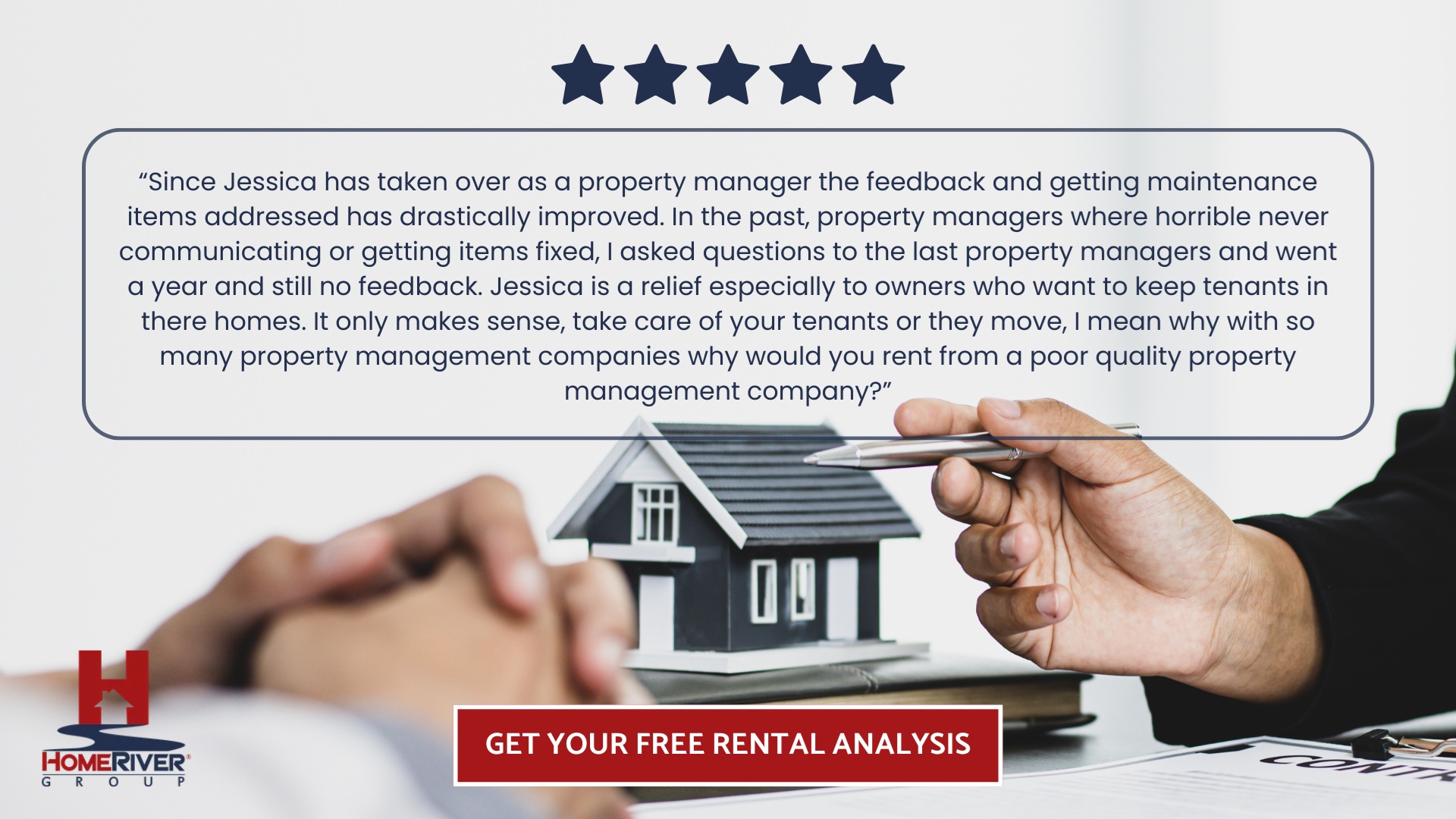
Unpaid rent can create serious challenges for landlords, and that’s where rent guarantee insurance comes in. This coverage helps safeguard your rental income when tenants default, providing financial stability and peace of mind. Beyond covering lost payments, many policies also contribute toward legal expenses tied to evictions or disputes. By understanding how rent guarantee insurance works, landlords can better protect their investments, reduce risk, and maintain consistent returns even in unpredictable rental markets.
We manage one of the nation's largest third-party property management portfolios, giving you unmatched access to resources and expertise. Every system is built for efficiency and accountability, from tenant placement to financial reporting. With advanced technology and decades of proven experience, we help protect your investment, improve tenant satisfaction, and strengthen long-term value. When you partner with us, you gain a team committed to measurable performance and growth.
This blog will explore what rent guarantee insurance covers, how it works, the qualifications landlords must meet, and why it can be a critical safeguard for maintaining steady rental income and long-term investment stability.
Understanding Rent Guarantee Insurance Basics
Rent guarantee insurance is a specialized coverage designed to protect landlords from financial losses if a tenant fails to pay rent. At its core, this policy guarantees that regular rental income will continue, even if tenants default. It is a buffer against potential revenue gaps, safeguarding property owners against unforeseen tenant issues such as job loss or unexpected financial hardship.
How Rent Guarantee Insurance Works
When a landlord purchases rent guarantee insurance, the policy typically kicks in after an agreed waiting period and once efforts to recover rent from the tenant have been exhausted. The insurer then covers the missed monthly rent for a specified period, as outlined in the policy terms. This arrangement helps landlords maintain steady cash flow during eviction or when searching for new tenants.
Requirements And Policy Conditions
It's important to note that most providers require landlords to have a formal tenancy agreement and may stipulate that tenants pass referencing checks before the policy becomes valid. Coverage limits, claim processes, and exclusions vary by policy, so landlords should carefully review terms to ensure alignment with their unique property situation.
Key Risks That Rent Guarantee Insurance Mitigates
Rent guarantee insurance is designed to shield property owners from some of the most common and potentially costly challenges they face when leasing their properties. The following are key risks that this insurance addresses explicitly:
Tenant Non-Payment Of Rent
One of the most significant threats to landlords is the risk of tenants not paying rent on time. This lapse creates an immediate gap in expected income, making it harder to cover mortgage payments, property taxes, or maintenance costs. Rent guarantee insurance typically covers the unpaid rent, helping maintain financial stability during tenant default.
Tenant Eviction Costs
Evicting a tenant for non-payment or lease violations can be lengthy and expensive. Legal fees, court costs, and the time spent managing the eviction can quickly add up. Many rent guarantee insurance policies contribute toward these legal expenses, reducing the financial burden on property owners.
Voided Income During Vacancy
After an eviction or if a tenant abandons the property, there may be a period without rental income while you search for new tenants. Rent guarantee insurance often covers the rent for a set period, even during this vacancy, helping property owners navigate the turnover process without immediate financial stress.
Protection Against Deliberate Damage
While traditional insurance may address accidental damage, costs resulting from deliberate acts by tenants before or during an eviction can go beyond standard coverage. Some rent guarantee insurance policies include protection against intentional property damage tied to a covered tenancy dispute.
Unforeseen Legal Disputes
Disputes with tenants sometimes escalate quickly, leading to unexpected legal proceedings. Insurance may include access to legal advice or support for dispute resolution, ensuring that landlords can confidently respond to complex situations.
By addressing these core risks, rent guarantee insurance provides a crucial safety net, helping property owners secure a more predictable income stream and peace of mind in managing their investment properties.
Step-by-Step Process To Secure Coverage
Securing rent guarantee insurance protects your rental income, but knowing the exact steps can help you move forward confidently. Here’s how to navigate the process efficiently:
Assess Your Needs: Start by evaluating your rental portfolio. Consider the number of properties, their locations, tenant profiles, and how much of your income you would need covered if rent stops coming in.
Research Providers: Look into insurance companies that specialize in rent guarantee insurance. Compare their offerings, reputations, and coverage limits. Pay close attention to exclusions or waiting periods that affect your peace of mind.
Gather Documentation: Most providers require specific documents before issuing a policy. Prepare recent rent rolls, proof of ownership, tenant histories, and lease agreements. Ensuring documents are up-to-date speeds up the process.
Submit An Application: Fill out the insurer’s application, which typically requests property addresses, tenant information, rent amounts, and claims history. Accuracy is essential to avoid coverage issues down the road.
Underwriting & Assessment: Once submitted, the insurer will review your application. This process may involve background checks on your tenants and an evaluation of rent payment histories. Be ready to provide additional information if requested.
Review Policy Terms: After approval, carefully review the policy details. Understand what’s covered, payment limits, deductibles, and the claims process. Clarify questions with the provider to prevent surprises during a claim.
Activate Your Coverage: Once satisfied, sign the agreement and make any required payments. Your coverage should take effect on the agreed start date and provide the protection you need moving forward.
Common Exclusions And Limitations To Watch
When evaluating rent guarantee insurance, it's essential to understand that not every type of risk is covered. Policies often have specific exclusions and limitations, which can significantly impact protection. Here are some of the most typical areas where coverage may not apply:
Tenant Qualification: Some insurers require strict tenant screening processes. Failing to follow their criteria, such as proper background checks or income verification, can void coverage if a claim is made.
Delays & Waiting Periods: Many policies include a waiting period before coverage kicks in, often 30 to 90 days after the policy start date. Additionally, missed rent may only be covered after a tenant is officially in arrears for a set number of days.
Maximum Payouts: Coverage is typically capped at a fixed amount, such as a certain number of months’ rent or a financial ceiling. Anything beyond those limits becomes the landlord’s responsibility.
Excluded Tenancies: Insurance may exclude particular types of leases. For example, short-term rentals, student lets, or corporate leases are sometimes not eligible for coverage.
Legal Proceedings Requirement: Most policies require the landlord to initiate eviction proceedings once nonpayment occurs. If the landlord delays or does not act according to procedure, the insurer may deny the claim.
Property Damage: Rent guarantee insurance is designed to cover lost rent, not damage to the property. Damage caused by tenants typically falls under a separate landlord insurance policy.
Staying informed about these common exclusions and limitations helps set realistic expectations and prevents unwelcome surprises if the need to file a claim arises. Always review policy documents carefully and ask questions before making a final decision.
When Rent Guarantee Insurance Makes Financial Sense
The decision to invest in rent guarantee insurance isn’t one-size-fits-all. It comes down to the specific risks and variables at play in your rental portfolio. If you own properties in markets with volatile employment rates, or you manage a growing roster of tenants, even a single month of unpaid rent can undermine your financial forecasts. This is where rent guarantee insurance emerges as a strategic asset—not merely a line item on an expense sheet, but a way to insulate your cash flow.
Impact Of Missed Rent On Mortgage And Operations
Consider landlords who rely on rental income to service mortgages or maintain routine repairs. In these situations, the fallout from a sudden loss of income can extend beyond a single missed payment. Late rent translates to late mortgage payments, delayed property upkeep, and a ripple effect across your entire operation. Landlords who carry substantial leverage, or those who simply desire steady, predictable revenue, often find that the peace of mind outweighs the cost of insurance it delivers.
Unexpected Life Events That Trigger Defaults
Risk mitigation is another compelling reason. Even with careful tenant screening, circumstances change, such as divorce, job loss, or medical emergencies, which can render even the most reliable renter unable to pay. In these scenarios, rent guarantee insurance covers the gap, allowing landlords to initiate the necessary legal processes without absorbing the financial hit outright.
Relevance For Multi-Family And Large Portfolios
Risk aggregation makes insurance even more relevant for landlords managing multi-family or large portfolios. While vacancy rates can be forecasted and averaged over time, defaulted rent is unpredictable and disruptive. With rent guarantee insurance in place, landlords can protect operational stability and plan confidently for the long term. This consideration becomes even more critical when expanding your portfolio, such as exploring strategies like how to buy a second home and rent the first, where steady cash flow ensures sustainable growth.
Final Thoughts
Navigating the rental landscape comes with its share of unpredictability. With rent guarantee insurance, landlords have a strategic asset that shields their rental income from potential loss due to tenant defaults or unforeseen circumstances. At HomeRiver Group, we recognize how vital consistent cash flow is for your property investments. This type of protection ensures that your financial commitments are met and reinforces the long-term profitability and stability of your rental portfolio.
Rent guarantee insurance is a proactive step toward professional risk management. Combined with thorough tenant screening, regular property maintenance, and responsive management, this coverage empowers landlords to focus on growth and long-term success. As the nation’s premier property management company, HomeRiver Group leverages exceptional service and local market insight to help clients confidently navigate the complexities of property ownership. Protect your assets, maintain momentum, and rely on proven expertise to maximize returns; your property is our priority.
Read Also:
Real Estate Investment Loans: How To Finance Your Next Rental Property
Move-Out Checklist For Landlords: Ensure A Smooth Tenant Transition
Frequently Asked Questions About Rent Guarantee Insurance
How does rent guarantee insurance protect landlords?
Rent guarantee insurance provides a financial safety net for landlords by covering rental income loss if a tenant defaults on their payments. This ensures landlords can maintain cash flow and meet financial obligations, even during periods of tenant nonpayment.
What is not covered by rent guarantee insurance?
Generally, rent guarantee insurance does not cover periods of property vacancy, tenant damage, willful neglect by the landlord, or rental loss from tenants not mentioned in the policy. Coverage specifics can vary by provider, so reviewing each policy for detailed exclusions is essential.
Is rent guarantee insurance tax-deductible?
In most cases, rent guarantee insurance premiums can be considered a deductible expense for landlords, since it is a cost associated with managing rental property. However, consult a tax professional to confirm applicability based on your circumstances.
How is rent guarantee insurance different from landlord liability insurance?
Rent guarantee insurance protects against lost rental income due to tenant default. In contrast, landlord liability insurance covers property owners against claims of injury or property damage on the rental premises. Each addresses a distinct aspect of risk in property management.
How long does it take to receive payments from a claim?
Processing times for rent guarantee insurance claims can vary by provider and specific policy. Typically, once all required documentation is submitted and the claim is approved, payment can be expected within 30 to 60 days. Delays may occur if additional information is needed.
Does rent guarantee insurance cover legal expenses?
Some rent guarantee insurance policies include coverage for legal expenses related to evicting tenants for nonpayment. However, not all policies offer this feature, so always verify the specifics with your insurance provider.
Who is eligible for rent guarantee insurance?
Eligibility for rent guarantee insurance typically depends on tenant vetting standards and property management policies. Insurers may require landlords to conduct reference checks, credit screening, and proper leasing procedures to qualify for a policy.
What does rent guarantee insurance typically cover?
Typically, rent guarantee insurance covers loss of rental income when a tenant fails to pay rent, up to a pre-determined period and amount. Some policies also reimburse for legal costs related to tenant eviction, depending on coverage terms. Review your policy details for exact benefits and limitations.










